Discover why visiting during the secret season should be at the top of your bucket list.
Winter is Yellowstone National Park’s quietest season, but we’ll share a lesser-known fact: it’s actually the best time of year to visit. Many insiders will attest that the key to a magical, once-in-a-lifetime trip is experiencing the wonder of the park in winter.
Some of the best wildlife, geyser viewing, and photography opportunities arise in the dead of winter, when the snow-white landscape provides the contrast that makes animals and thermal wonders appear even more dramatic.
Two iconic park lodges — Old Faithful Snow Lodge and Mammoth Hot Springs Hotel, about 50 miles apart — remain open from mid-December to early March to accommodate winter guests.
Starting in mid-December, a plethora of fun activities cater to all kinds of visitors. If you dream of exploring the stunning landscapes, strap on some snowshoes or cross-country skis for the ultimate adventure. Or take a whirl around the ice rink for an outdoor activity the whole family can enjoy. If lower-key pursuits are your objective, witness wildlife from the comfort and warmth of a snowcoach. Or simply cozy up with a good book in front of a lodge fireplace. There’s something for everyone at the world’s first national park.
Are you convinced to book your next bucket list trip during this often overlooked and underrated season? If so, here are some expert tips for planning the ultimate vacation:
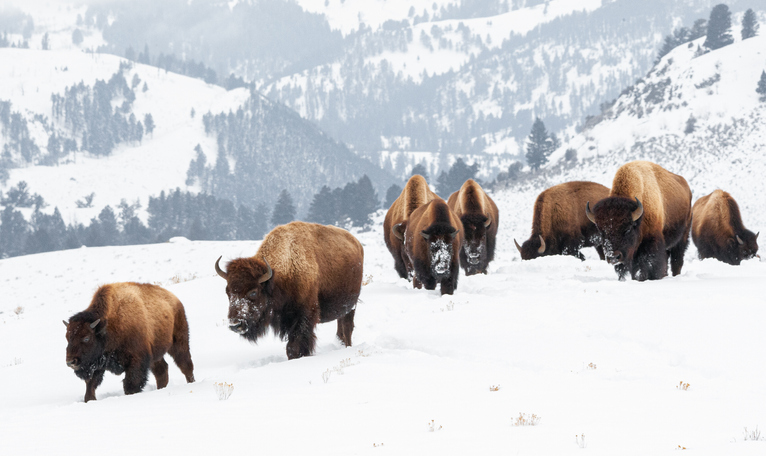
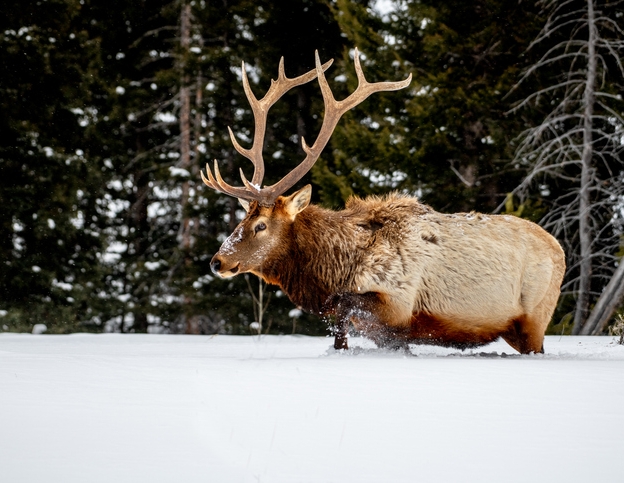
Wildlife Watching
Yes, bears take to their dens for a long winter’s nap, but other Yellowstone denizens are up and about. Moreover, they can be easier to spot, thanks to their heightened contrast against a blanket of pristine snow. Plus, their snow-outlined footprints make animals easier to track.
Tips:
- A premier viewing spot is Lamar Valley in the park’s Northern Range. You’ll also find serious wolf watchers here along the roadsides behind powerful spotting scopes. Watch for bison herds trudging through the unfettered landscape, their breath steamy in the winter air.
- Bison often convene near the park’s thermal features for an impromptu steam bath.
- As in other seasons, wildlife is most active at dawn and dusk.
- Stay at least 25 yards away from bison, elk, and pronghorn, and 100 yards or more from wolves and bears. (During warm winters, bears have been spotted as early as February.)
- It’s easy to go car-free in winter. Snow coaches shuttle visitors between Old Faithful and Mammoth Hot Springs and venture into territory beyond on guided outings. The Madison Wildlife Excursion follows a scenic seven-mile corridor in search of wildlife. On the Lamar Valley Wildlife Tour a specially equipped minibus departs in the early morning from the Mammoth Hot Springs Hotel and includes a breakfast snack and boxed lunch.
- Most park roads close to regular traffic during the winter (usually from early November to early April). If you do drive outside the park or on the one park road – open to private vehicles from the north entrance in Gardiner, Montana through the Northern Range of Yellowstone to Cooke City, Montana – make certain your vehicle takes to the pavement.
- Pack essentials, such as binoculars; a foam-rubber mat to stand on and prevent the cold from penetrating your soles; a thermos filled with a hot beverage; and food to fuel your wanderings. (You can order boxed lunches from the Mammoth Hot Springs or Old Faithful Snow Lodge Dining Rooms.)
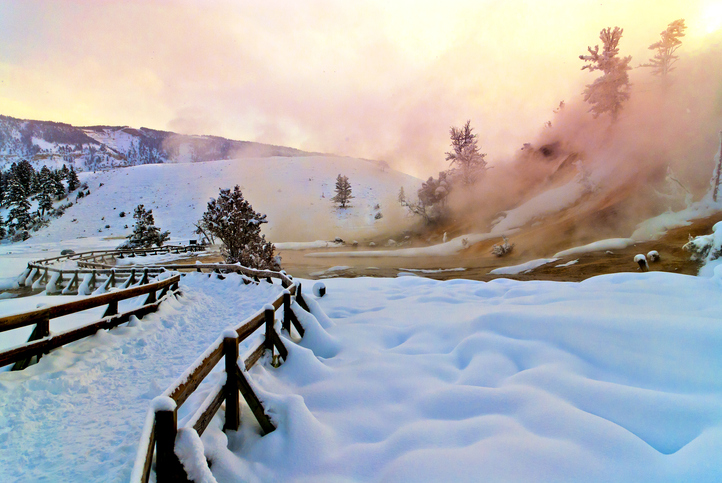
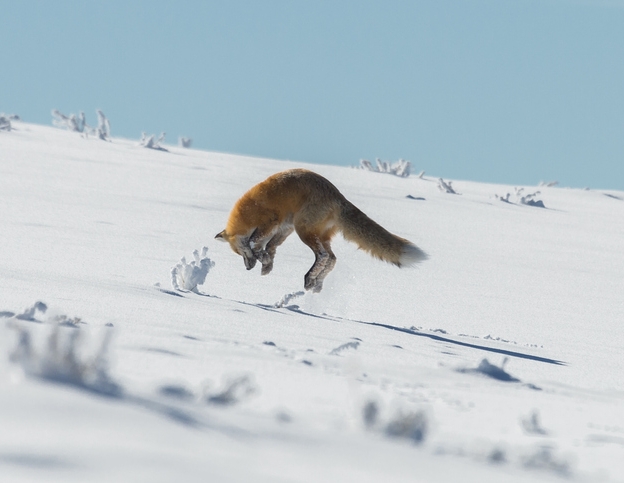
Photo Safaris
Yellowstone’s dramatic landscapes become all the more breathtaking against winter’s icy backdrop, when the muted light brings an ethereal quality to photos.
Tips:
- The pros get out early to take advantage the morning’s dramatic light.
- Leave the details to the experts by booking an all-day Winter Photo Safari along the Firehole and Madison River corridors. Guided instruction and lunch are part of the tour.
- Dress in layers and wear warm boots with thick soles. Consider wearing thin, rubber tipped gloves while shooting and slip a pair of mittens over them afterward.
- Keep your camera cold and your batteries warm. If your camera is warm the lens will fog up when cold air hits it. Batteries drain more rapidly in cold weather, so tuck extras in a pocket or other warm place. If you’re using a cellphone camera, protect your device by keeping it close to your body for warmth.
- Protect your camera lens near erupting geysers as silica in the water of thermal features bonds to glass and plastic.
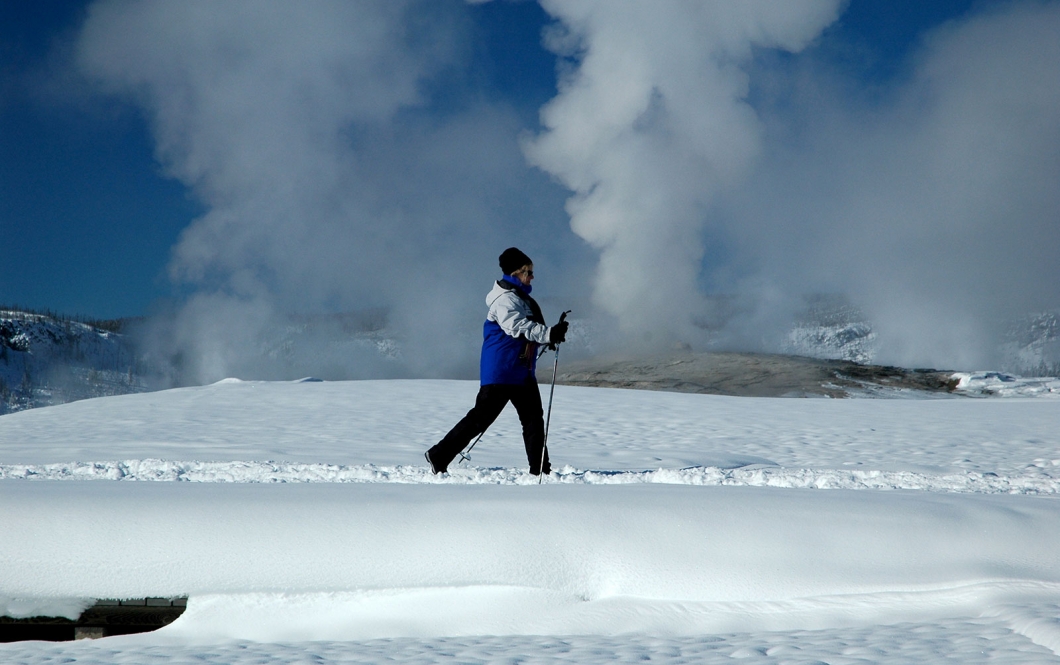
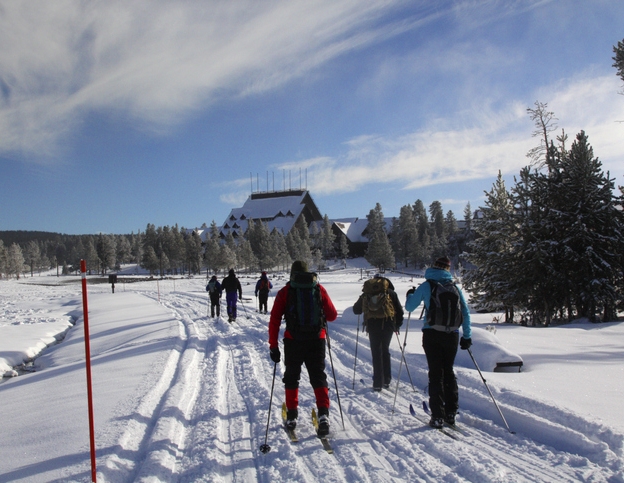
Cross-Country Skiing
With a variety of groomed ski trails for all ability levels, Yellowstone is paradise for cross-country aficionados.
You can download helpful National Park Service maps online, but before setting out, check in at the Bear Den Ski Shop at Mammoth or Old Faithful for current conditions. The shops rent ski gear and you can even book a lesson.
Tips:
- Ski shuttles operate three times daily, ferrying visitors from Mammoth Hot Springs to the Indian Creek Cross-Country Ski Area. Another shuttle carries skiers from Old Faithful Snow Lodge to nearby trails.
- Join a group for a full-day ski tour in the park’s spectacular Grand Canyon of the Yellowstone region. A shorter five-mile guided Lone Star Excursion hugs the Fire Hole River.
- Let experts guide you on custom ski tours departing from Mammoth.
- Pack snacks. All that exercise is bound to make you hungry.
- Follow the recommendations outlined for snowshoeing.
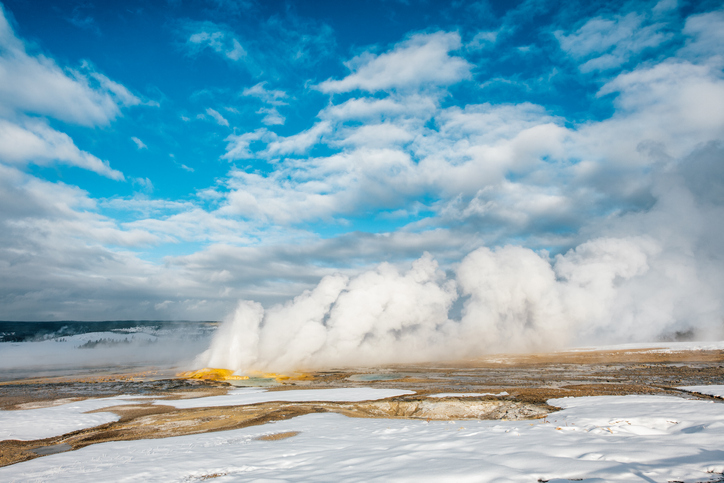
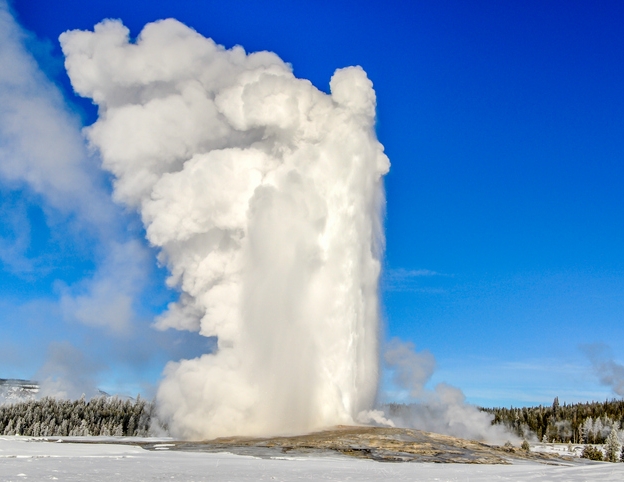
Geyser Gazing
These geothermal dynamos appear even more stunning in winter. Ice formations on nearby trees and manmade structures add to the otherworldly setting. You can even get a sauna effect by standing in their steamy wake. (Remember to protect your camera and glass lenses from the spray.)
Tips:
- Check with the NPS for updated predictions for when eruptions are expected.
- Bring a pad to sit on while you wait for the show
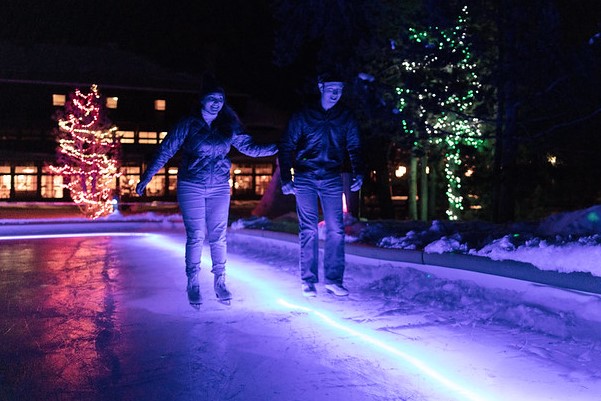
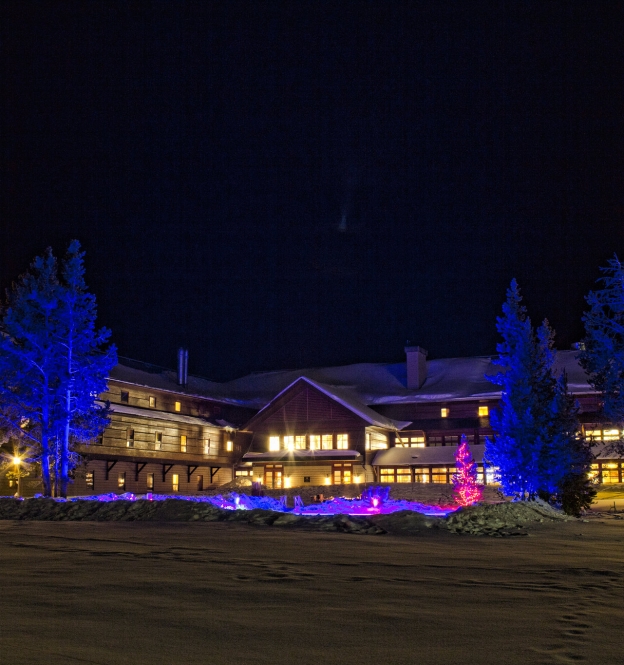
Ice Skating
Yellowstone has two outdoor rinks — at Old Faithful Snow Lodge and Mammoth Hot Springs Hotel.
Tips:
- Ice time is free, and if you’re a hotel guest, you can rent skates at no cost.
- Work up an appetite for dinner by taking an evening whirl around a lighted rink.
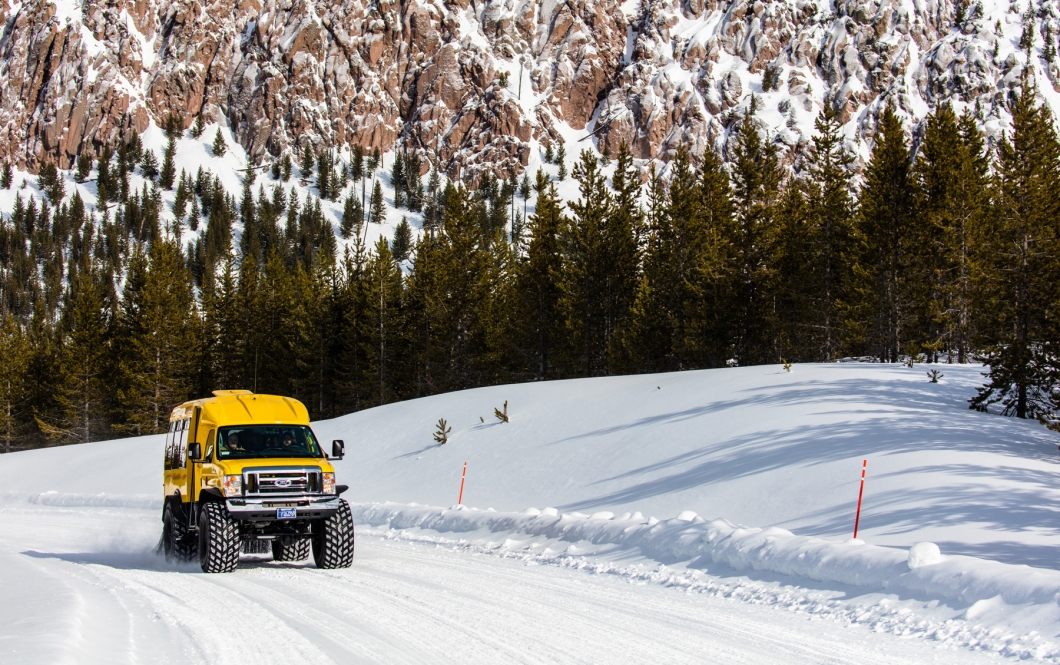
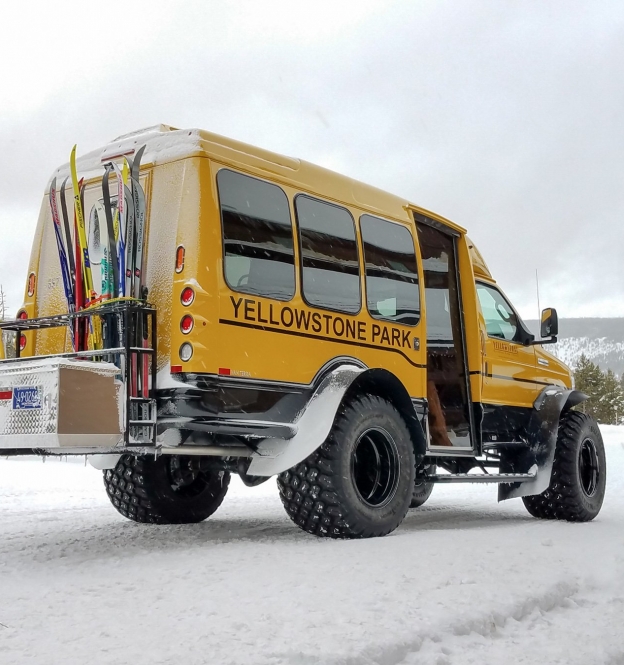
Snowcoach Touring
Sit back and enjoy the ride as an expert takes the wheel in one of the park’s custom snowcoaches. The drivers know the lay of the land and are on the lookout for wildlife and other features you might miss on your own.
Tips:
- Several tours offer the comfort of a heated snowcoach. Try the three-hour Firehole Basin Winter Adventure and enjoy spectacular scenery and wildlife watching. Or the two-hour evening Steam, Stars and Winter Soundscapes that focuses on sounds rather than sights. Or the five-hour Norris Geyser Basin Tour, a well-kept winter secret.
- Bring your camera. The coaches’ panoramic windows are photo friendly.
- Pack a small bag with snacks, drinks, and other essentials.
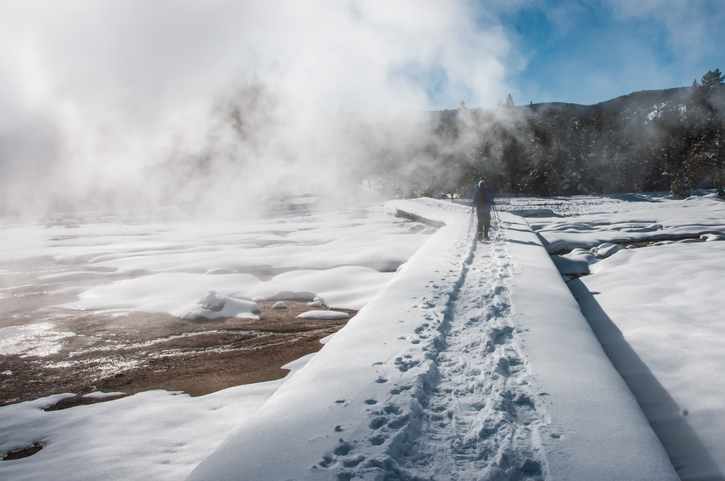
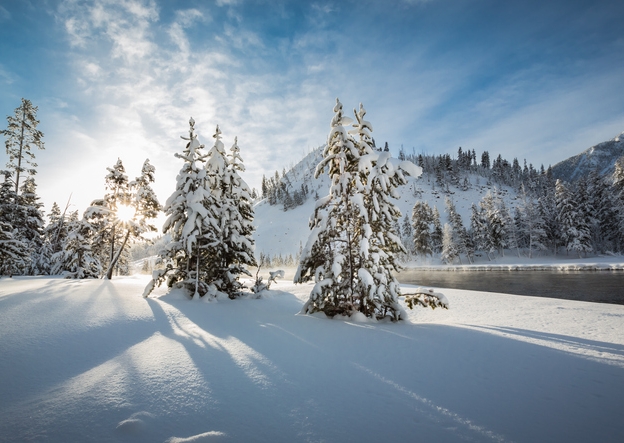
Written by: Jayne Clark, Washington, DC-based freelance writer, and previous travel reporter at USA TODAY and several other daily newspapers.
For more travel experiences available from Xanterra Travel Collection® and its affiliated properties, visit xanterra.com/stories.


